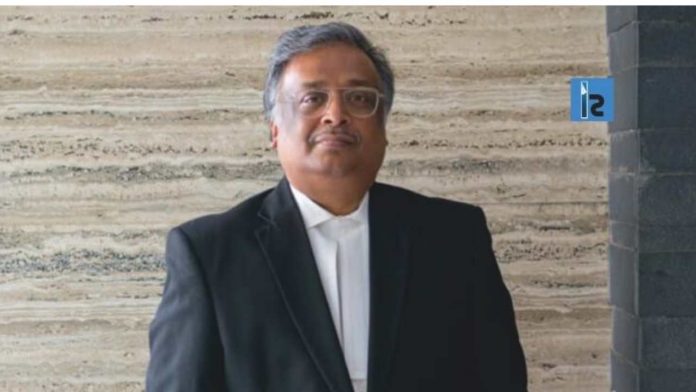Evaluating the strengths in access to virtual court hearings amid Covid 19 with Gautam Khaitan, Managing Partner of OP Khaitan &Co
India continues to function amidst the lockdown as Covid 19 cases upsurge with its dreaded second wave over the country. However, between this unprecedented world crisis, the government and it’s agencies keep up with its functionality, commit to defy standstill and operate within these unfortunate constrains. The judiciary has been one great example to this.
With its inculcation of virtual as well as hybrid court proceeding setups, courts around the country have been operational throughout the crisis of Covid 19, keeping law and order in check and justice in fairness for its citizens. Keeping community wellness in mind, the government has been steadily making way to ease the torments that the Covid-19 crisis has rendered upon civilians and institutions alike.
In view of the same, Gautam Khaitan marks how the alternative court transactions has been a very healthy step along the way to ensure safety of all the people attached to the judicial system on a daily basis. He further brings to light how the next step from here should be to extend this step in order to help the entire ecosystem of ‘non lawyers’ attached to the legal system. Media and journalism has been a integral tie to the court in its role to disseminate information about rulings for the awareness of the citizens.
As judicial processes determine direct impacts on the lives of the countrymen, Gautam Khaitan fears how the absence of the involvement of journalists in court hearings could tamper citizens right to information. The Supreme Court of India acknowledged the exigency and in the beginning of this month, had launched a mobile application that enables journalists and netizens to access Apex court’s rulings from the tap of a finger.
With great admiration for this recent switch, Gautam Khaitan marks how this step could not just upbeat the success of virtual court proceedings but could also be a brilliant advancement to carry forth beyond the lockdown, to post-pandemic India.
As Chief Justice NV Ramana marks “This will serve as a useful resource for media persons and the general public who wish to be better informed about the rulings of the court,”, Gautam Khaitan briefs about how the provision is legendary to foster the democratic spirits of the country and its Constitution that guarantees a Right to access justice under Article 21.
Alongside we also see feasibility in the step- litigants can now extend their involvement remotely, making sure they are safe from the risks of travelling amid Covid or spending money for these travels.
And increased public participation also ensures that citizens do away with manipulated news and misinformation over matter. Gautam Khaitan remarks how “Covid has changes the perspective towards digital from being an alternative or a luxury to the primary tool that is keeping the world order in place.
We are working together from far apart, and welcoming this much needed digital revolution for India.” The upgradation of the digital infrastructure of the country and subsuming court room to this development, is one positive change that India certainly ought to use for its benefits.
Evaluating the consensus further, Mr. Khaitan alerts how the noteworthy step should be backed by adequate infrastructure like strong internet connectivity, something that paramountly shoulders the success of the entire setup. However, this process has also been subject to criticism due to the concerns to national security and privacy- information disseminated outside courtrooms could either become ‘too much details’ or easily get through cyber surfers who use in malicious intent.
The fingers yet draw back to the question of- Is anything online, private anymore? Gautam Khaitan emphasizes on an even-ended approach to deal with this by extending broadcasts for only the cases that are of the nation’s interest and do not compromise with the right to privacy for individuals like in cases of matrimonial feuds or family disputes.
Other kinds of objections that have come up includes the question- if court room will reduce to a mere spectacles or parade as it capitulated its seclusion?
Gautam Khaitan renders most of these concerns resolvable and deems the contentions unconvincing enough for the new law to not come to practise in India. He adds “To educate common people on the functioning of judiciary is a strong reason to why live streaming of court sessions is a legitimate upgrade.” Even as the lockdown restrictions are lifted, it is a wise choice to take technology to the best advantage and continue with life streaming for the benefits of litigants, citizens and the courts alike.
Our country itself validates the strength of the new accord as both the Lok Sabha and Rajya Sabha proceedings have been screened for the people from 2004- the legislature has been practising so for nearly two decades now. It is wise that the judiciary takes cue on the steps and chooses to follow them. Apex courtrooms in states like Canada and Australia, have already been live streaming it’s sessions with great success.
To note further, we have the International Court of Justice, functioning with this provision. The United Nations meetings becomes yet another terrific example with its 24 hours live Tv streaming. History and experiences narrate well on how this exercise is neither new nor too difficult to set up.
With his strong esteems in favour of the application, Gautam Khaitan remarks “Making the best use of technique, adapting to changes with evolved ideas and steps that make good functioning only better are some of the many ways as to why live streaming of court sessions amidst the Pandemic is a healthy suggestion for our country.”
As chief justice Ramana hints of how the video conferencing mode is a “temporary arrangement for now but could become permanent”, we cannot help but hope that the idea of live streaming is accepted and taken forward in the future by India. Gautam Khaitan is one of the leading experts in corporate law and has over three decades of experience of working in Power, Oil, Telecommunication, Mining, and Infrastructure Sectors. He is currently a managing partner in Delhi-based global law firm, OP Khaitan & Co.
🔥291











